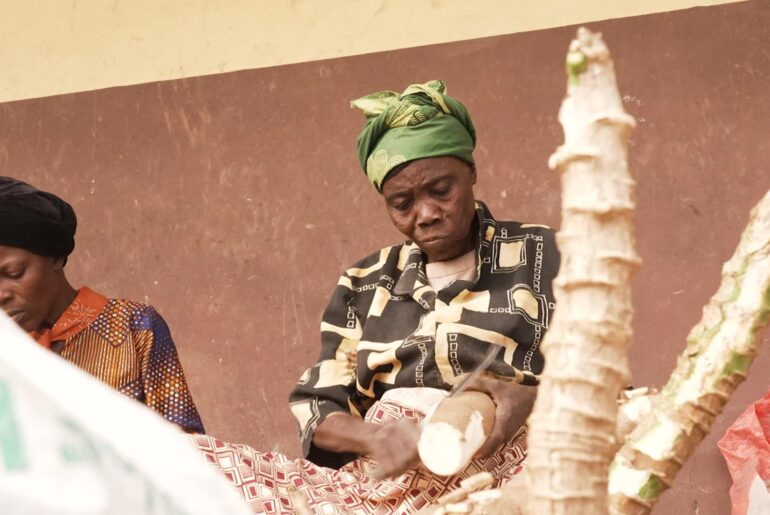In the latest episode of Connecting Africa, CNN International’s Eleni Giokos delves into the untapped opportunities for food production on the continent, exploring the innovative approaches, sustainable practices, and growth trajectories that could revolutionise Africa’s food production.
In Nigeria, an estimated $10 billion is spent importing food to make up for a gap in local production, according to the International Trade Administration. Many are looking to cassava, a root vegetable, to close that gap. Kola Adeniji, CEO of Niji Farms tells CNN, “Cassava is one of the most valuable crops that we can grow in Africa.”
The root vegetable is similar to a potato, it is gluten free and can be used as a base for many dishes, with its byproducts ranging from flour to ethanol. Yemisi Iranloye, CEO of Psaltry International explains, “We are looking at being able to replace everything that corn and wheat can do with cassava.”
One of the challenges to expanding the market is the difficulties faced while processing cassava. This is why researchers at the International Institute of Tropical Agriculture (IITA) are working to develop crop varieties. Mercy Diebiru-Ojo, Seed System Specialist at IITA talks about the process, “Nigeria is the largest producer of cassava. However, in terms of yield, we are not even around the top 10. And this is because we are not using the right planting materials. So, this is the narrative we are trying to change. We want to change that trajectory. We want farmers to get access to good, healthy planting material of improved varieties. The researchers now, they are breeding or developing varieties that are suited or tailored to meet specific needs.”
In South Africa, the sugar industry is valued at over 20 billion rand annually with sugarcane the country’s second-most valuable crop. But the 2018 introduction of a tax on sugar-sweetened drinks to reduce consumption and address health concerns greatly impacted the industry. Thomas Funke, CEO of the South Africa Canegrowers Association speaks about the impact, “It eroded 250,000 tons of sugar demand in basically one year and those consequences we are still seeing today. We had huge job losses.”
As a result, the industry has set about diversifying its products. Kitty Foxon, Group Leader Strategic Research at the Sugar Milling Research Institute in Durban discusses diversification, “We are currently doing work developing technologies for sugar processing but we also do research into the tech-economics of diversification so that would be about making new products from sugarcane and sugarcane processing streams.”
One possible option is using sugar to make sustainable jet fuel for the aviation industry. Foxon explains, “So, the aviation fuel sector is a really interesting one. In order to ‘green’ the industry they really need to look at biofuel and one of the processes that has been approved for sustainable aviation fuel is the ethanol to jet fuel process.”
Industry leaders say exploring new markets within sugarcane production could become easier with the African Continental Free Trade Agreement. Larry Riddle, Acting Chairman at Gledhow Sugar Company details the impact, “The African Free Trade Agreement is trying to create incentives for the continent’s sugar producers to supply sugar into Africa. To export into regions that are sugar deficit in Africa, countries like Kenya and Tanzania, rather than send it to the EU or send it through to Asia. We should be looking at our continent before we look at others, and clearly that makes the most sense.”




